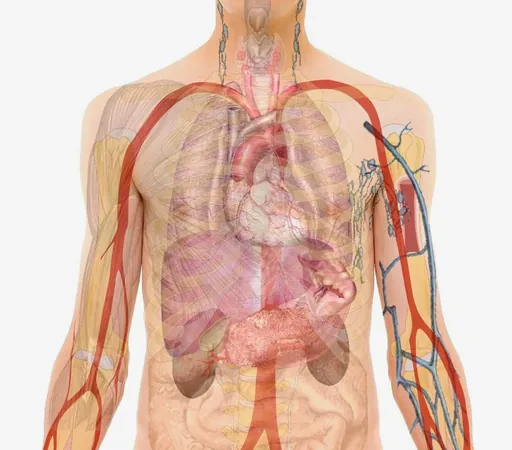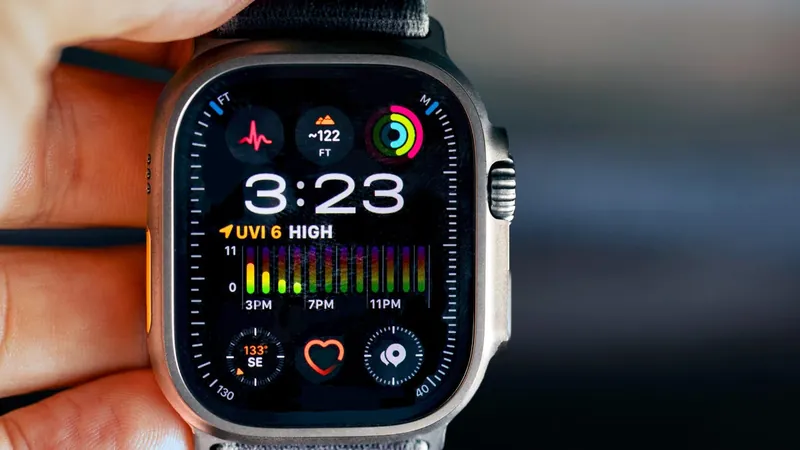
NASA Unveils Groundbreaking Research on Astronaut Health and Space Adaptation!
2025-09-15
Author: Sarah
New Studies Highlight Space's Impact on Astronauts
NASA continues to push the boundaries of human understanding in space exploration, unveiling a series of critical research findings that reveal how the space environment affects astronaut health and their ability to readapt to Earth's gravity.
Key Research Findings
A recent study led by Dr. K. Rithidech investigated the effects of the space environment on the plasma proteome of astronauts. Published in *Life Science Space Research*, these cutting-edge results point to significant alterations in astronauts' bodily responses upon their return to Earth. The research was conducted with data from the International Space Station (ISS), and it emphasizes how vital understanding these changes is for future long-term missions.
In another fascinating exploration, a team spearheaded by B. Crucian examined the effects of hypoxia and hyperoxia on immune function, relevant to conditions experienced in space. Their findings, published in *Frontiers in Physiology*, unveil crucial insights into how varying oxygen levels might influence health on space missions.
Supporting Accessibility in Space
Notably, Dr. J. Rhoades and his team conducted pioneering research on the accessibility of space vehicles for individuals with disabilities, investigating how they can safely ingress and egress from the Orion and Boeing CST-100 Starliner spacecraft. This initiative marks a significant step towards inclusivity in space exploration.
Artificial Gravity: A Game Changer?
Is artificial gravity the answer to mitigating the adverse effects of microgravity? A study published in *Frontiers in Neurology* revealed that 30 minutes of daily artificial gravity did little to counteract brain activity changes induced by head-down tilt during cognitive tasks. This raises exciting questions about future research and solutions for the neurological effects of living in space.
Innovations in Cell Research
One of the most prominent studies published in *Cell Stem Cell* explored how space exposure affects hematopoietic stem and progenitor cell aging, utilizing a cutting-edge nanobioreactor detection method. This research offers promising implications for understanding stem cell biology in extreme environments.
Exploring the Effects of Microgravity
Dr. C.E. Mason's work highlights how extreme physical stressors impact the human body, contributing to the growing field of space medicine. As we prepare for future exploratory missions, understanding these variables becomes increasingly critical.
A Treasure Trove of Additional Research
The recent NASA Spaceline Current Awareness List not only features these groundbreaking studies but also showcases a wealth of additional research. Topics include the effects of functional foods on health during long-term space flights, new methodologies for assessing space radiation risks, and innovative approaches to navigate the challenges of space tourism.
Conclusion: Paving the Path for Future Exploration
As these studies indicate, NASA's commitment to understanding the profound effects of space on human health is vital as we look toward a future that includes longer missions and potential colonization outside our planet. The rigorous research and findings pave the way for safer, more effective space exploration. Stay tuned for more revolutionary insights from NASA!




 Brasil (PT)
Brasil (PT)
 Canada (EN)
Canada (EN)
 Chile (ES)
Chile (ES)
 Česko (CS)
Česko (CS)
 대한민국 (KO)
대한민국 (KO)
 España (ES)
España (ES)
 France (FR)
France (FR)
 Hong Kong (EN)
Hong Kong (EN)
 Italia (IT)
Italia (IT)
 日本 (JA)
日本 (JA)
 Magyarország (HU)
Magyarország (HU)
 Norge (NO)
Norge (NO)
 Polska (PL)
Polska (PL)
 Schweiz (DE)
Schweiz (DE)
 Singapore (EN)
Singapore (EN)
 Sverige (SV)
Sverige (SV)
 Suomi (FI)
Suomi (FI)
 Türkiye (TR)
Türkiye (TR)
 الإمارات العربية المتحدة (AR)
الإمارات العربية المتحدة (AR)